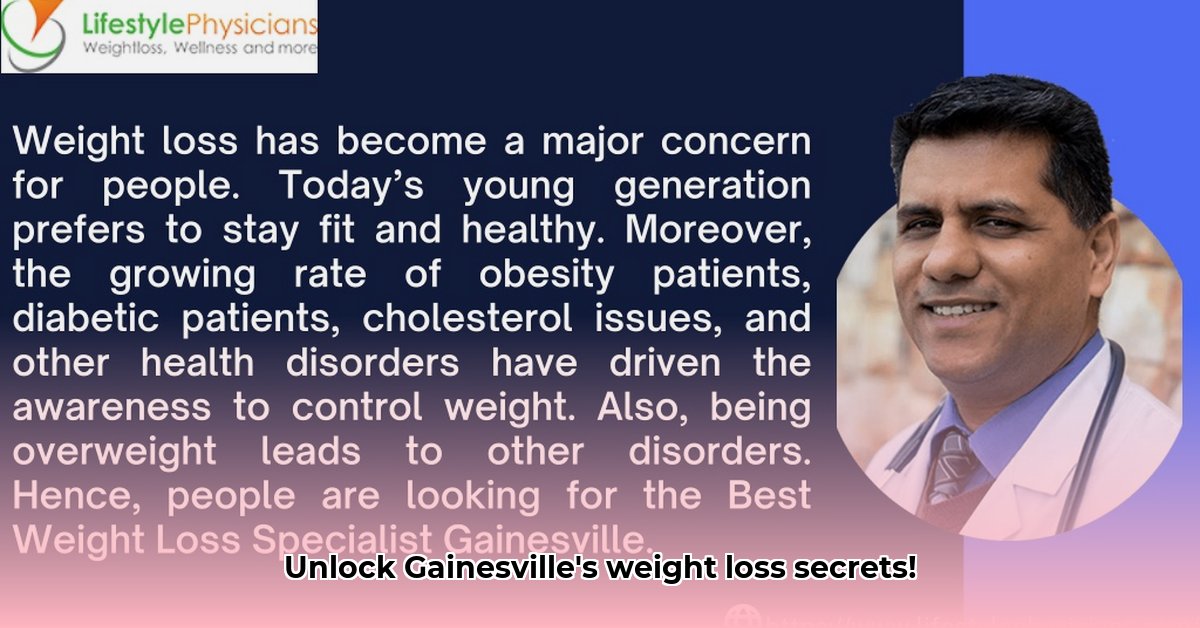
Weight Loss Options in Gainesville: Surgery vs. Non-Surgical Approaches
Considering weight loss in Gainesville, GA? This guide outlines your options, helping you choose the best path for your needs and lifestyle. We'll explore surgical and non-surgical methods available, focusing on actionable steps to achieve and maintain a healthier weight.
Understanding Your Choices
Weight loss in Gainesville encompasses diverse approaches: surgical and non-surgical. The optimal choice depends on your health status, lifestyle, budget, and personal preferences.
Surgical Weight Loss Options:
Laparoscopic Sleeve Gastrectomy: This minimally invasive procedure removes part of the stomach, creating a smaller pouch to restrict food intake. (Note: Recovery is typically faster than other surgeries.)
Robotic Gastric Bypass: Utilizing robotic technology, this more complex surgery creates a smaller stomach pouch and alters the digestive system's path, promoting significant weight loss. (Note: This procedure is more comprehensive than sleeve gastrectomy.)
Gastric Balloon: A less invasive temporary option. A balloon fills up a portion of the stomach, creating a feeling of fullness. (Note: This method is often temporary, lasting around six months.)
Non-Surgical Weight Loss Options:
Medically Supervised Weight Loss Programs: These programs offer personalized plans, often combining dietary counseling, fitness guidance, and behavioral therapy for sustainable weight management.
Support Groups: Joining groups provides peer support, shared experiences, and practical advice, creating a sense of community during this journey.
Choosing the Right Path: A Personalized Approach
Selecting the best approach requires careful consideration:
Health Assessment: Pre-existing conditions (diabetes, high blood pressure) impact suitable options. A thorough medical evaluation is crucial.
Lifestyle Evaluation: Can you commit to long-term lifestyle changes? Surgical options necessitate post-operative adherence to dietary plans and lifestyle adjustments. Non-surgical approaches demand consistent commitment to healthy habits and regular exercise.
Budgetary Considerations: Surgical procedures and comprehensive programs can be expensive. Insurance coverage should be thoroughly investigated.
Personal Preferences: Do you prefer faster results (surgery) or gradual, self-directed changes (non-surgical)?
Making Informed Decisions: Questions to Ask Your Doctor
Before committing to any weight loss program, ask these crucial questions:
What are the potential risks and benefits of each method? (Understanding potential side effects is critical for informed consent.)
What are realistic weight loss expectations and long-term success rates? (Realistic expectations prevent disappointment and promote commitment.)
What kind of support will be provided throughout the process? (Ongoing support is vital for sustained weight loss.)
What are the total costs, and what portion is covered by insurance? (Transparency about costs is essential for financial planning.)
Gainesville Weight Loss Providers: Longstreet Clinic and NGPG
Gainesville offers reputable weight loss providers. While comprehensive success rate and pricing data are not readily available online, both Longstreet Clinic and North Georgia Primary Care (NGPG) provide comprehensive programs. Directly contacting these clinics for individual consultations is highly recommended.
What to Expect During Your Weight Loss Journey
The process differs significantly based on your chosen approach:
Surgical Weight Loss:
Pre-operative Phase: Thorough medical evaluations, dietary preparation, education, and potentially psychological counseling.
Surgery: The surgical procedure itself.
Post-operative Phase: Strict adherence to dietary guidelines, regular follow-up appointments, and ongoing lifestyle modifications are crucial for success.
Non-Surgical Weight Loss:
Program Structure: Regular appointments, customized meal plans, exercise regimens, behavioral modification strategies, and access to support systems.
Duration: Program lengths vary. Some are short-term, while others provide ongoing support.
The Key to Long-Term Success: Sustainable Lifestyle Changes
Sustaining weight loss requires holistic lifestyle changes:
Nutrition: Adopt a balanced diet rich in fruits, vegetables, and lean protein. Avoid crash diets.
Exercise: Incorporate regular physical activity into your routine.
Support: Maintain a strong support network, including friends, family, support groups, or healthcare professionals. This continual engagement fosters long-term adherence to your goals.
Remember, the best weight loss solution is personalized. Take your time, ask questions, and choose a path that aligns with your well-being and commitment to long-term success. Contact Longstreet Clinic and NGPG today to start your journey toward a healthier you.